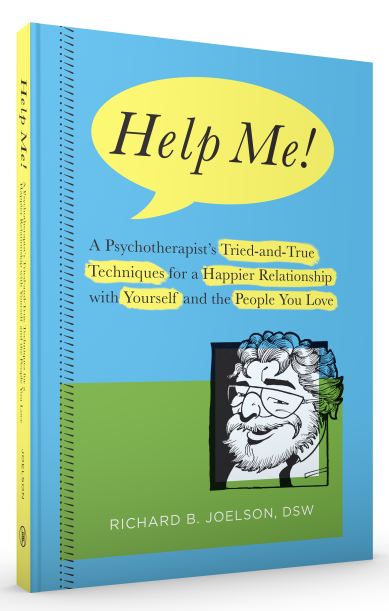
Sometimes Condolences Can Hurt, More Than Help.
In the course of my nearly four decades as a clinical social work psychotherapist, I have worked with many clients who have endured serious illness, suffered a tragic loss, or some other equally life-altering trauma. In their therapy sessions, many of them have spoken about the well-meaning friends and relatives who inadvertently added to their troubles by saying something that was heard as thoughtless, insensitive or, at the very least, non-sympathetic.
One client, the mother of two adult daughters, suffered a tragic loss when her oldest child, age 21, mysteriously died in her sleep. At the funeral, a well-meaning neighbor attempted to comfort her by saying, "Don't feel too bad, you still have another daughter." Another client, whose child had died in-utero one month before birth, was told by her obstetrician, "I don't want you going around feeling like a coffin, okay?” She hadn’t, until that remark.
Chemotherapy patients complain about people telling them how they will or should feel before, during or after their treatments. Simple attempts at reassurance, comfort or support, like, "Don't worry, it'll be okay," or, "I'm sure everything will be just fine,” are often heard as impersonal and hollow.
A new client, who recently told me of her attempt to kill herself 10 years earlier by jumping out of a window, remembers her therapist predicting that she would soon "forget all about this," as he signed the cast on her broken leg. Another client, a 40-year-old woman with a terminal illness, was assured by her physician, her lover and her boss, that she would be "just fine."
Comments like these are powerful and often find permanent homes in the memories of their recipients. And they are usually uttered by individuals described as otherwise "sensitive," "thoughtful" and "supportive." All of us, at times, have felt unsure how best to respond to those in our lives who have undergone a trauma of one kind or another, especially if that trauma was unrelated to our own experience. Our need to provide reassurance or comfort in response to the misfortune of others may lead us to say the very kinds of things described above.
Attempts to "give" to a suffering person may have more to do with our needs than with theirs. The therapist who predicted his client would "forget" about her suicide attempt may unknowingly have been alleviating his guilt or trivializing this serious event so that he could cope with it. The obstetrician's seemingly offhanded "advice" to his patient may really have been a way of addressing his own feelings about such a tragic loss occurring on his watch. Inadvertently hurtful remarks often come about as a result of a need to say something, regardless of whether the something we choose has been thoughtfully considered beforehand.
I asked these individuals what they would have preferred to hear from those upon whom they rely for help and support in times of crisis. Generally, they said that reassurance is something they only want from people who know more about their situation than they do. A reassuring comment from a trusted physician, for example, is usually received quite differently than reassuring words from someone who is not really in a position to offer any. They also want people to tell them how they personally feel, (e.g. "I feel terrible for you," or "I'm so sorry") rather than attempting to tell them how they ought to be feeling under the circumstances.
Several clients told me that the words "I'm sorry" have more meaning and value than many of the more elaborate expressions of sympathy and concern they have heard. A client who recently lost both parents in an automobile accident, told me that ''as far as I was concerned, there was really nothing to say, so less was more and 'I'm sorry' or 'I'm with you' was just right." Another client who suffered a miscarriage found little comfort in being told that her loss was God's will working in mysterious ways or that perhaps her fetus was deformed and she should consider herself lucky to have been spared a torturous life. The simple "so sorry for your loss" was the phrase she remembers as being most comforting.
The guidelines that emerge from these troubling stories can be helpful to all of us when we have occasion to comfort or support someone for whom we care:
- Think about what you want to say before you say it
- Keep it brief and simple
- Say what you feel and not what you think or wish would be felt by another
- Remember that "I'm sorry" may often be the most helpful thing you can say to someone regardless of the severity or magnitude of their situation
